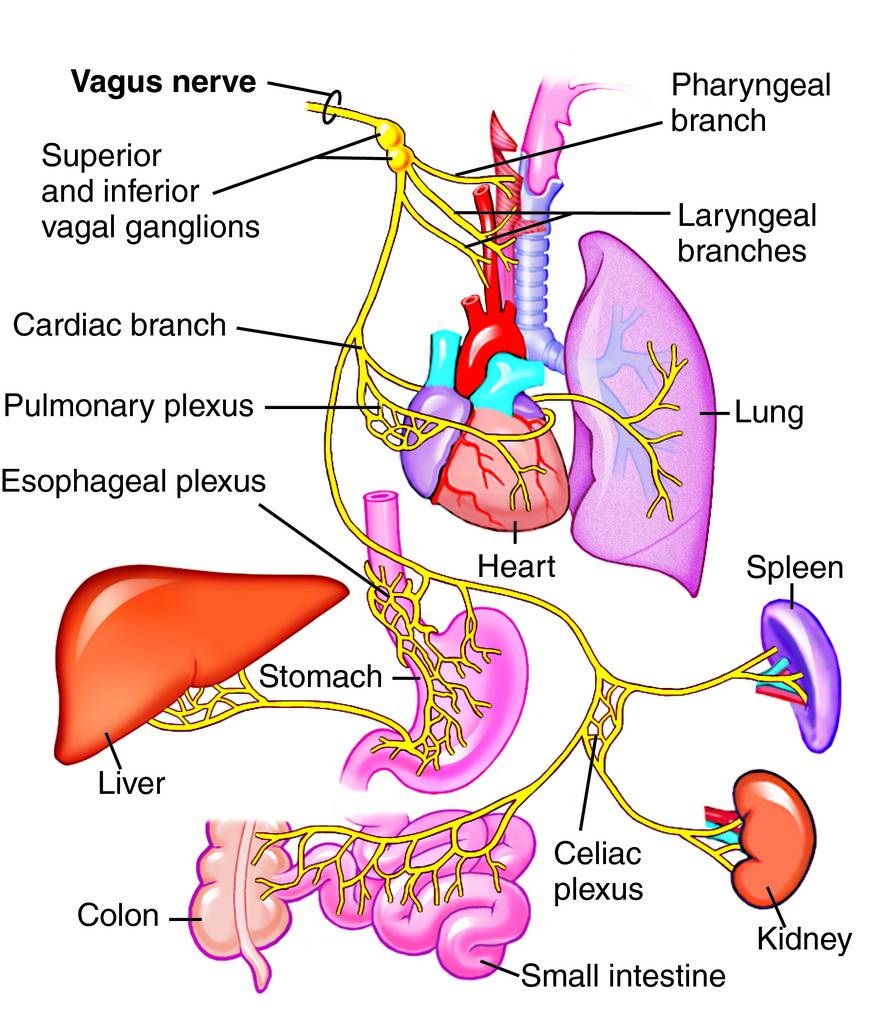|
STRESS & THE VAGUS NERVE Your body’s levels of stress hormones are regulated by the autonomic nervous system (ANS). The ANS has two components that balance each other, the sympathetic nervous system (SNS) and the parasympathetic nervous system (PNS).
The SNS turns up your nervous system. It helps us handle what we perceive to be emergencies and is in charge of the flight-or-fight response. The PNS turns down the nervous system and helps us to be calm. It promotes relaxation, rest, sleep, and drowsiness by slowing our heart rate, slowing our breathing, constricts the pupils of our eyes, increases the production of saliva in our mouth, and so forth. The vagus nerve is the nerve that comes from the brain and controls the parasympathetic nervous system, which controls your relaxation response. And this nervous system uses the neurotransmitter, acetylcholine. If your brain cannot communicate with your diaphragm via the release of acetylcholine from the vagus nerve (for example, impaired by botulinum toxin), then you will stop breathing and die. Acetylcholine is responsible for learning and memory. It is also calming and relaxing, which is used by vagus nerve to send messages of peace and relaxation throughout your body. New research has found that acetylcholine is a major brake on inflammation in the body. In other words, stimulating your vagus nerve sends acetylcholine throughout your body, not only relaxing you but also turning down the fires of inflammation which is related to the negative effects from stress. Exciting new research has also linked the vagus nerve to improved neurogenesis, increased BDNF output (brain-derived neurotrophic factor is like super fertilizer for your brain cells) and repair of brain tissue, and to actual regeneration throughout the body. Original article by Angela Savitri Petersen Comments are closed.
|
AuthorHomayoun Shahri Archives
May 2016
Categories
All
|
Ravonkavi Privacy Policy
©2018 Ravonkavi
©2018 Ravonkavi


 RSS Feed
RSS Feed